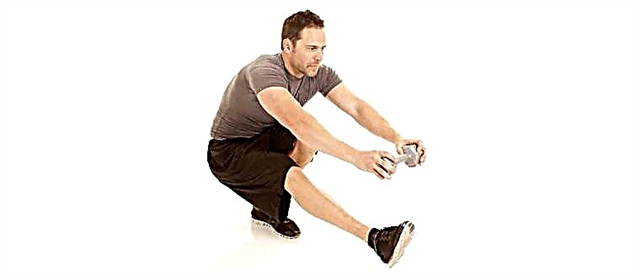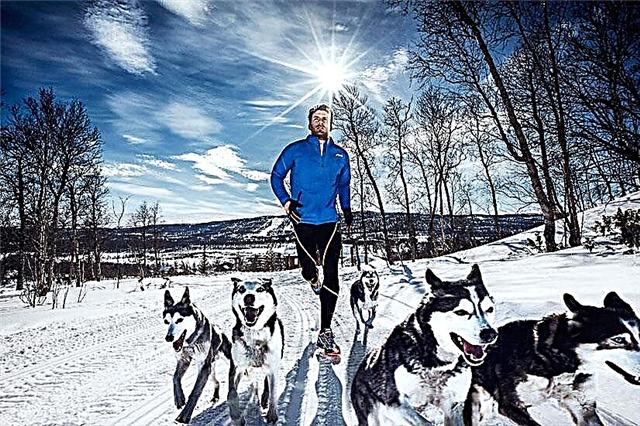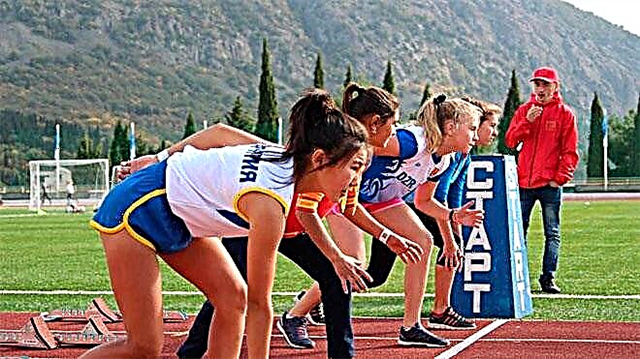Many people have such a situation that you seem to train, train, but the result does not grow. The main ones will be discussed in today's article.

Few training
The most obvious reason for stunting progress is lack of exercise. This applies mainly to beginner runners. If you train 3 times a week, then at the beginning the progress will be stable, and you will improve the result. However, progress will gradually slow down until it stops completely. You will increase the intensity, the volume of the run, but there will be no progress.

In this case, you need to think about driving 4, 5 workouts per week if you want to further advance.
Moreover, at a fairly high level, even 5-6 workouts per week may not provide an opportunity to progress and you will have to introduce two workouts per day.
Incorrect programming principles
This reason applies to runners of absolutely every skill level. But if it is easy enough for amateurs to get rid of this reason, then a professional will have to think about it in order to understand exactly where the program is incorrectly compiled.
For amateurs, the most obvious mistake is the monotony in the training process. That is, either constant slow running, or constant running at a fast pace. Lack of tempo work, interval training, speed training, and neglect of strength training.
All this can cause a stop in progress. You can run 500 km a week, do 10 times a week, but not progress unless you develop all the body systems that are involved in running.

Terms of performance
Progress is usually judged by competition. In principle, this is correct. After all, it is for the starts that full preparation is going on.
However, the conditions under which a particular race takes place can be very different. At one start, you might get lucky and the weather will be perfect. A track without climb. And at the other start there will be many slides, strong wind and cold. And the results on such races will be very difficult to compare.

For example, you ran 10 km in ideal conditions in the spring and achieved 41 minutes. We trained for six months, and in the fall we also decided to test our strength at this distance. But we were not lucky with the weather and the track. Slides, temperature around zero, strong wind. As a result, you showed 42 minutes. Obviously, you are regressing. But if you think about it, in this case the conditions greatly influenced your final result. And if you ran in the same conditions as in the spring, you would run better and break your own record. Therefore, in fact, you continue to progress. And you don't need to panic and get upset.
Running technique
It is not uncommon for many especially novice runners to have running technique as the limiting factor. There are major mistakes in running technique that can actually affect your performance. If these mistakes are not corrected, then even increasing the amount and quality of training can prevent you from progressing.
You can read more about running technique in the article of the same name: running technique
Running tactics
The principle is the same as when running in different conditions. If you distribute your forces incorrectly at a distance, then being ready, say, for 40 minutes in a 10 km run, you will not be able to run out even from 42-43 minutes. And also outwardly it will seem that you have no progress. Although, in fact, there is progress. It was not possible to simply check it at the official start.

But in this case, training results can be considered an indicator of progress. If they grow, then there is progress. If there is no improvement in training results either, then there may already be a problem and not in tactics and progress has really stopped.
Too much workout
The opposite situation is to a small number of workouts. Only in this case, the problem is that the body simply cannot cope with the load and fatigue sets in. The muscles simply cannot adapt to the load and workouts are no longer beneficial. You seem to be training, doing everything right, giving all your best at each workout to the fullest, but there is no progress. In this case, it is highly likely that you are simply overworked.
To prevent this from happening, do not forget the main principle - after a hard workout, an easy one should always go. You don't need to increase your workouts per week quickly. The body must adapt gradually.
Level up
At some point, progress can slow down a lot, and it will seem that it has stopped. This usually happens to beginner runners who progress very quickly at first. Let's say a runner overcomes the first 10 km in 60 minutes. And after six months of training, he runs in 45 minutes. That is, it improves the result by 15 minutes in six months. Then the next six months of correct workouts improve the result by only 3-5 minutes. And it seems that progress is starting to slow down, although in fact there is proportionality to the level.
Further improvements will be even slower. And it is much easier to improve the result by 1 minute by running 10 km in 60 minutes than winning the same minute by running in 37 minutes. This should not be forgotten.
Age
You can run at any age, it is indisputable. However, gradually your progress may slow down and stop precisely because you are simply getting older and can no longer run like a young one. This is normal and natural. If at the age of 30 the winner of some major 10 km race will have a result in less than 30 minutes, then the winner in the same race at the age of, say, 40-50 years old will have a result in the region of 35 minutes. At the same time, he will also actively train, and, possibly, be a master of sports in the past, having a result in less than 30 minutes. But now he can no longer progress relative to himself.

Diseases, physiological characteristics, trauma
This factor stops progress only during the period of its action. That is, during an illness, of course, a person will either not train at all, or the training will take place in a sparing mode.
It makes no sense to delve into this issue in detail. Everything here is individual. The same disease can affect the body of two people in different ways. Different illnesses affect progress in different ways. And with one chronic disease, you can calmly train and progress. And with the other, you cannot perform intensive training at all and you can simply maintain your shape, without progress.
The main thing to understand is that diseases can also be the reasons for stopping or slowing down in progress. But this issue must be considered strictly individually.









